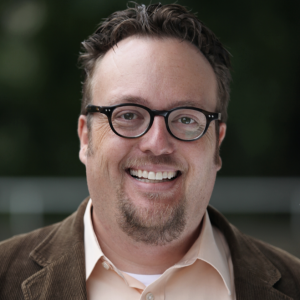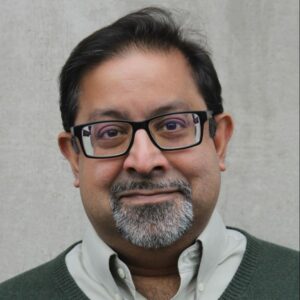(MADISON, Wis.) A new University of Wisconsin-Madison report has found that 27% of Wisconsin Republicans and 14% of Wisconsin Democrats reside in partisan bubbles, where they do not regularly hear opposing perspectives in news or political conversations. Nationwide, the equivalent numbers were 28% for Republicans and 15% for Democrats, indicating that Wisconsin’s political information environment mirrors the nation.
About half of Republicans in partisan bubbles are there because they only consume pro-Republican media regularly (like Fox News, Daily Caller) and they limit political conversations to Republicans. Most of the rest don’t regularly consume news of any kind, but they talk politics exclusively with other Republicans.
Among Democrats, only about 1% consume pro-Democratic media regularly (like MSNBC, Huffington Post), so nearly all partisan-bubble Democrats are people who don’t regularly consume any news and exclusively talk politics with Democrats.

The 2022 Center for Communication and Civic Renewal Survey interviewed 3,031 Wisconsinites and 2,907 U.S. adults last November. A team of UW-Madison faculty, grad students, and staff affiliated with the Center for Communication and Civic Renewal (CCCR) developed dozens of questions, all led by Faculty Director Dr. Michael Wagner.
Wagner, who is also a professor in the UW-Madison School of Journalism and Mass Communication, characterized the importance of these findings for understanding the state of democracy in Wisconsin.
“When we think about what we want and how we govern ourselves in Wisconsin, this report highlights the critical importance of where we get our information and casts a revealing light on the value of a robust local news ecosystem,” he said.
A more relaxed definition of partisan bubbles might be more encouraging: only about 4% of Republicans and 2% of Democrats get zero exposure to mainstream news or cross-party conversation. That’s because almost everyone at least rarely consumes some mainstream news, where they are more likely to be exposed to broader political perspectives – though mainstream sources are not civically ideal either.
People in partisan bubbles were more likely to tow the party line than fellow partisans with exposure to more diverse news or conversations, but the differences are not large.
Among the largest differences, Wisconsin Republicans in partisan bubbles were 14 points more likely to describe themselves as “pro-life” on abortion than other Republicans, and Wisconsin Democrats in partisan bubbles were 8 points more likely to describe themselves as “pro-choice” than other Republicans.
Partisan bubbles distinguished other views that are key to the health of democracy. For example, Wisconsin Republicans in partisan bubbles were seven points less trusting of the state’s elections than Republicans who weren’t. By contrast, Wisconsin Democrats in bubbles were no more or less confident in the vote compared to other Democrats.

Wisconsin Republicans in bubbles were also 12 points more likely than other Republicans to endorse a false conspiratorial view of Democrats linked to QAnon, a loose-knit group that the Federal Bureau of Investigation regards as a serious threat for political violence. In the national survey, Republicans in bubbles were 7 points more likely to endorse the view than other Republicans.
“These survey data, comparing Wisconsin residents to the nation, reveal that many of our social divisions may stem from our media and conversation choices, and that those who isolate themselves in partisan silos hold more extreme views, especially on the political right,” said Dr. Dhavan Shah, Maier-Bascom Professor and Research Director for the Center for Communication and Civic Renewal at the University of Wisconsin-Madison.
Interestingly, the report found substantial news disinterest too: 39% of Wisconsinites and don’t regularly get news from any media source, though only 6% never get any news through media. The equivalent figures in the national survey are 43% and 6%, respectively.
CCCR’s previous research report in March 2023, “Civic Fracture & Renewal in Wisconsin,” assessed the public’s civic attitudes and behaviors and found worrisome signs of social and political conflict – including ending relationships over politics, safety fears in politics, and views supporting for political violence among a minority of citizens – but we also identify vital agreement across divides in ways that may help repair democracy in Wisconsin.
The 2022 Center for Communication and Civic Renewal Survey was supported by the John S. and James L. Knight Foundation, which advances research on the intersections of media and democracy.
About the Center for Communication and Civic Renewal
The Center for Communication & Civic Renewal is an interdisciplinary research team housed in the School of Journalism & Mass Communication at the University of Wisconsin-Madison. CCCR’s research aims to understand Wisconsin public opinion and the state’s broad political communication ecology, drawing upon frameworks and methods foundations in communication, political science, sociology, psychology, and computer science.
CCCR’s past research is synthesized in the book, Battleground: Asymmetric Communication Ecologies and the Erosion of Civil Society in Wisconsin, published by Cambridge University Press in 2022, along with several peer-reviewed articles published in academic journals, and public-facing articles in national outlets including the Washington Post, Vox, and TechStream as well as local outlets like the Milwaukee Journal Sentinel, the Capital Times, and the Wisconsin State Journal.
The Center’s public opinion polling is one of three analytical components in our broader efforts studying political communication in Wisconsin. The Center also conducted in-depth interviews with over 200 citizens throughout the state to understand how they’re talking and thinking about politics. Finally, the Center conducted large-scale computational analyses of social media and news media content throughout the state.